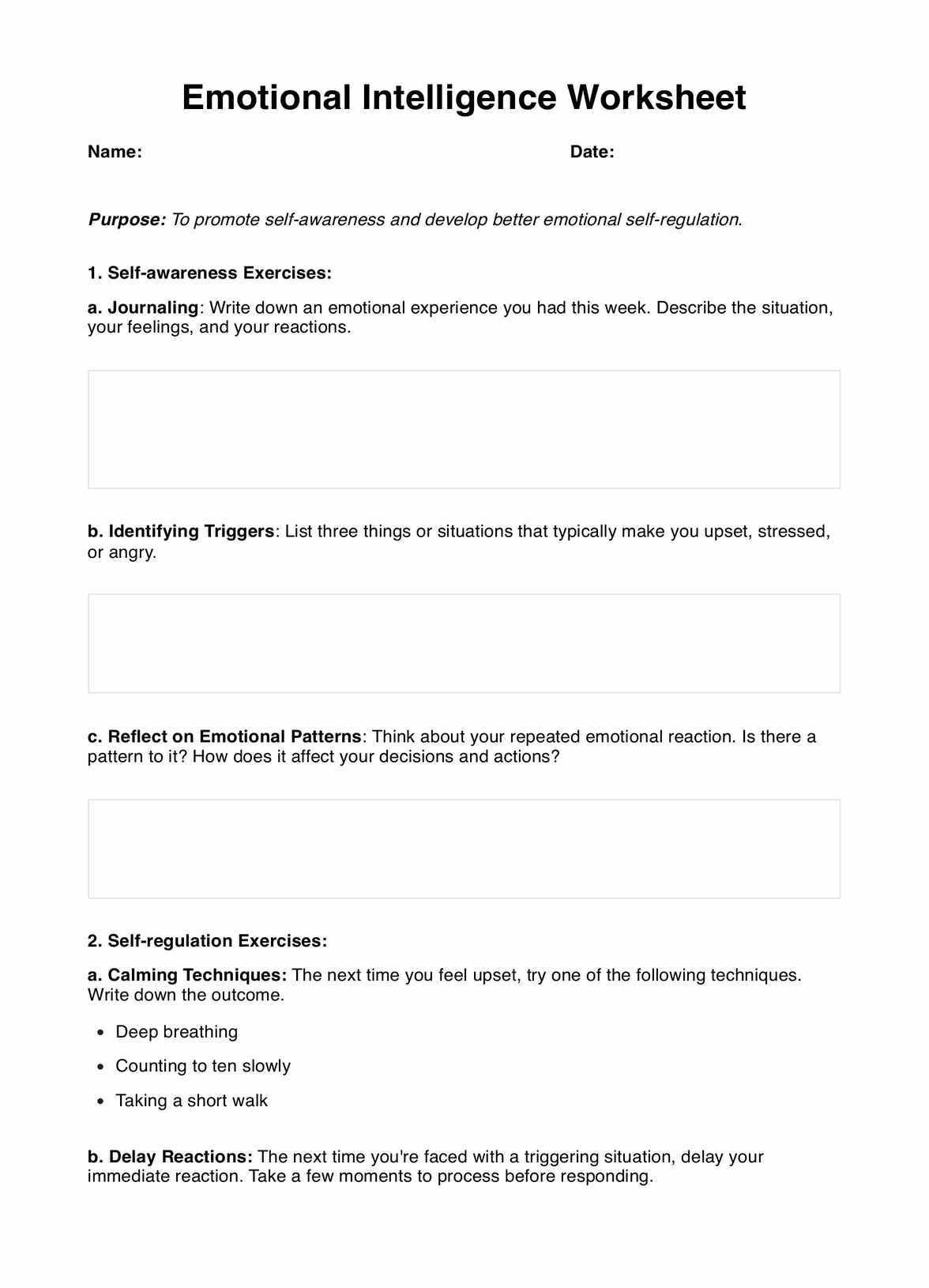Anyone keen on fostering emotional understanding and growth can utilize EI Worksheets, from therapists to educators to coaches and individuals.

Emotional Intelligence Worksheets
Dive into our comprehensive Emotional Intelligence Worksheet. Understand its benefits, and get a free PDF sample. Empower your emotional journey today!
Use Template
Emotional Intelligence Worksheets Template
Commonly asked questions
They're employed as reflective tools, guiding individuals through exercises that enhance self-awareness, empathy, communication, and emotional regulation.
The worksheet aids in identifying emotional triggers, developing coping strategies, enhancing interpersonal skills, and fostering a deeper understanding of oneself and others.
EHR and practice management software
Get started for free
*No credit card required
Free
$0/usd
Unlimited clients
Telehealth
1GB of storage
Client portal text
Automated billing and online payments











